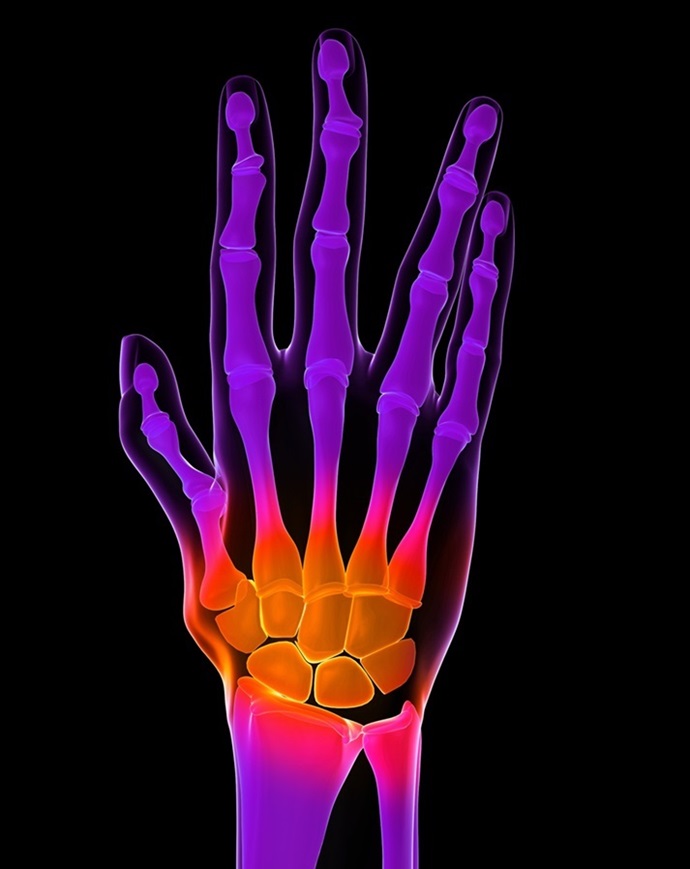New PET Tracer Detects Inflammatory Arthritis Before Symptoms Appear
Posted on 13 Feb 2024
Rheumatoid arthritis, the most common form of inflammatory arthritis, affects 18 million people globally. It is a complex autoimmune disease marked by chronic inflammation, leading to cartilage and bone destruction, functional limitations, disability, decreased quality of life, and potentially reduced life expectancy. A significant focus in rheumatology is the use of precision diagnostics to predict the onset of rheumatoid arthritis in individuals with risk factors. The goal is to identify such individuals before they exhibit symptoms, enabling early treatment to prevent the disease's development. Now, a novel PET imaging technique can noninvasively detect active inflammation in the body, even before clinical symptoms emerge.
CD69, an early marker of cell inflammation, is found in the tissue of patients with active rheumatoid arthritis. Using 68Ga-DOTA-ZCAM241, a CD69-targeting PET agent that binds to proteins present in activated immune cells, researchers at the Karolinska Institutet (Solna, Sweden) showed that the technique produces images of ongoing inflammation throughout the body, such as rheumatoid arthritis. This makes it easier for physicians to correctly diagnose and treat patients. In their study, the researchers evaluated the performance of the 68Ga-DOTA-ZCAM241 for early disease detection in a mouse model of inflammatory arthritis.

In the study, mice underwent 68Ga-DOTA-ZCAM241 PET imaging before and at various intervals after arthritis induction. Disease progression was monitored through clinical parameters like body weight and paw swelling. Analysis of 68Ga-DOTA-ZCAM241 uptake in the paws was conducted, and CD69 expression was examined in tissue biopsies post the final PET scan. A control group of mice was scanned using a nonspecific control peptide. The results showed increased uptake of the CD69-specific tracer 68Ga-DOTA-ZCAM241 in the paws of mice with induced inflammatory arthritis as early as three days post-induction, preceding clinical symptom manifestation by five to seven days. The tracer uptake also corresponded with clinical scores and disease severity, while the nonspecific control peptide showed minimal binding.
“68Ga-DOTA-ZCAM241 is a potential candidate for PET imaging of activated immune cells during rheumatoid arthritis onset,” said Olof Eriksson, PhD, associate professor at Uppsala University. “We know that physicians are asking for better methods to image inflammation, for example in rheumatoid arthritis, and we hope this technology will be broadly used in many diseases that involve activated immune cells and inflammation.”
Related Links:
Karolinska Institutet














